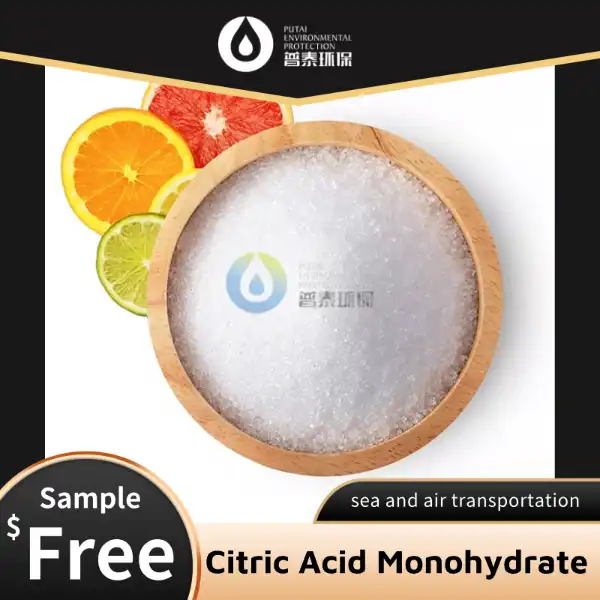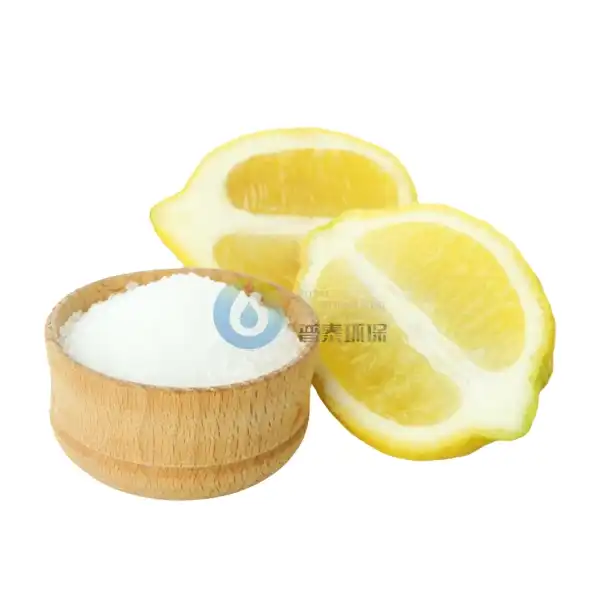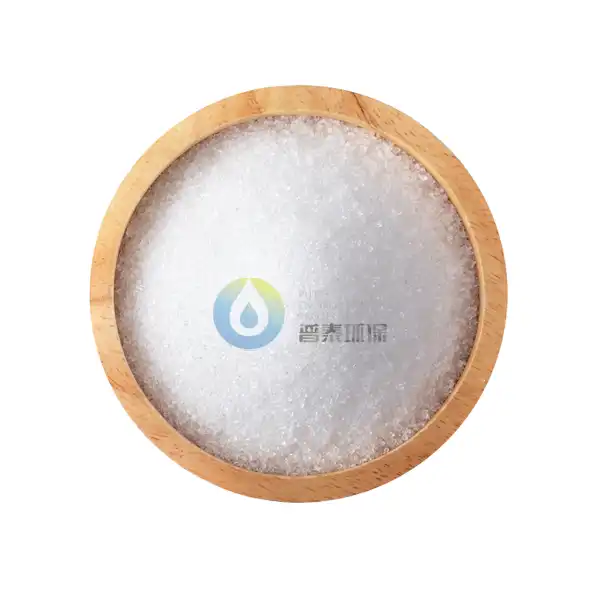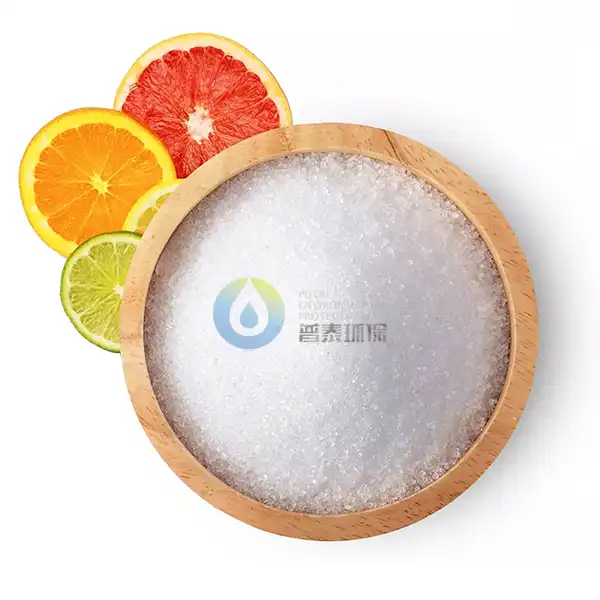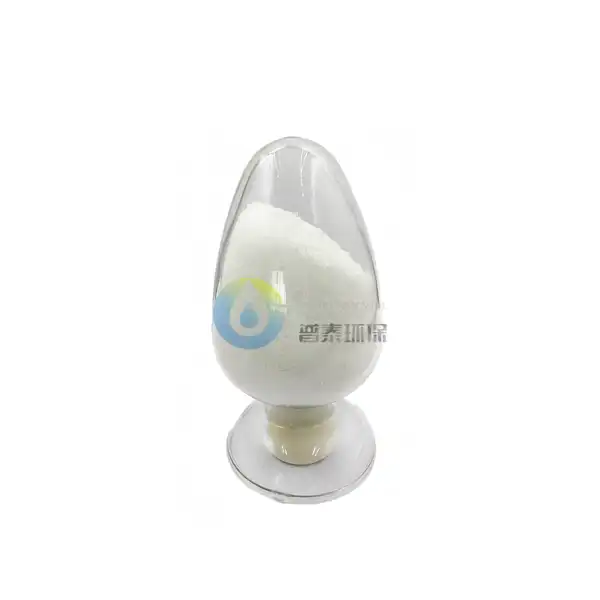Does Citric Acid Powder Enhance Pharmaceutical Formulations?
In the ever-evolving world of pharmaceutical formulations, researchers and manufacturers are constantly seeking ways to improve drug efficacy, stability, and bioavailability. One versatile compound that has gained significant attention in this realm is citric acid powder anhydrous. This naturally occurring organic acid, found abundantly in citrus fruits, has proven to be a valuable asset in pharmaceutical applications. In this comprehensive exploration, we'll delve into the multifaceted role of citric acid powder in enhancing pharmaceutical formulations, examining its impact on bioavailability, stability, and real-world applications.
Bioavailability Boost: Citric Acid's Role
Bioavailability, the extent and rate at which a drug is absorbed and becomes available at the site of action, is a crucial factor in pharmaceutical formulations. Citric acid powder has emerged as a potent enhancer of bioavailability for various reasons:
H Modulation: Citric acid's ability to adjust the pH of formulations can significantly impact drug absorption. By creating an optimal pH environment, it can enhance the solubility and permeability of certain drugs, particularly those that are weakly acidic or basic. This pH modulation can lead to improved dissolution rates and, consequently, better bioavailability.
Chelation Properties: Citric acid powder anhydrous exhibits chelating properties, which means it can form complexes with metal ions. This characteristic can be particularly beneficial for drugs that are prone to degradation by metal-catalyzed reactions. By sequestering these metal ions, citric acid helps maintain the integrity of the active pharmaceutical ingredient (API), potentially leading to improved bioavailability.
Mucoadhesive Enhancement: Some studies have suggested that citric acid can enhance the mucoadhesive properties of certain formulations. This increased adherence to mucosal surfaces can prolong the contact time between the drug and the absorption site, potentially improving bioavailability, especially for drugs administered through mucosal routes.
Permeation Enhancement: Citric acid has been shown to act as a permeation enhancer in some formulations. It can temporarily disrupt tight junctions between epithelial cells, facilitating the paracellular transport of drugs. This mechanism can be particularly useful for improving the absorption of large molecular weight drugs or those with poor permeability.
Solubility Enhancement: For poorly water-soluble drugs, citric acid can act as a solubilizing agent. By forming soluble complexes or altering the microenvironment around drug particles, it can enhance dissolution rates and, consequently, improve bioavailability.
Stability and Shelf Life in Medications
Beyond its role in enhancing bioavailability, citric acid powder plays a crucial part in improving the stability and shelf life of pharmaceutical formulations:
Antioxidant Properties: Citric acid is a potent antioxidant, capable of scavenging free radicals and preventing oxidative degradation of sensitive APIs. This antioxidant activity is particularly valuable for formulations containing easily oxidizable compounds, helping to maintain their potency over time.
pH Stabilization: The pH-regulating capacity of citric acid powder anhydrous is not only beneficial for bioavailability but also for stability. Many drugs have an optimal pH range for maximum stability. By maintaining the formulation within this range, citric acid helps prevent degradation reactions that could compromise the drug's efficacy.
Microbial Growth Inhibition: Citric acid's acidic nature creates an environment unfavorable for microbial growth. This inherent antimicrobial property can help extend the shelf life of pharmaceutical products, particularly in liquid formulations where microbial contamination is a concern.
Metal Ion Chelation: As mentioned earlier, the chelating properties of citric acid are not only beneficial for bioavailability but also for stability. By sequestering metal ions that could catalyze degradation reactions, citric acid helps maintain the integrity of the formulation over time.
Hygroscopicity Reduction: In some formulations, especially those containing moisture-sensitive ingredients, citric acid can help reduce hygroscopicity. This property is particularly valuable for maintaining the stability of powdered or tablet formulations in humid environments.
Freeze-Thaw Stability: For liquid formulations that may be subjected to freeze-thaw cycles during storage or transport, citric acid can help improve stability. It can act as a cryoprotectant, preventing the formation of ice crystals that could damage the formulation.
Case Studies: Successful Pharmaceutical Applications
The theoretical benefits of citric acid in pharmaceutical formulations are compelling, but real-world applications provide the most convincing evidence of its efficacy. Let's examine some case studies where citric acid powder anhydrous has been successfully employed to enhance pharmaceutical formulations:
Oral Antibiotic Formulations: A study investigating the use of citric acid in oral antibiotic formulations found that its inclusion significantly improved the dissolution rate and bioavailability of certain antibiotics. The researchers attributed this enhancement to the pH-modulating and solubility-improving properties of citric acid. The improved bioavailability led to more effective treatment outcomes and potentially reduced the required dosage.
Transdermal Drug Delivery Systems: In a groundbreaking study on transdermal drug delivery, researchers incorporated citric acid into a patch formulation for a poorly permeable drug. The results showed a marked increase in drug permeation through the skin, attributed to citric acid's ability to temporarily disrupt the skin barrier and enhance drug solubility. This application opened new possibilities for drugs traditionally limited by poor skin permeability.
Inhalation Formulations: Citric acid has found success in inhalation formulations, particularly for drugs used in the treatment of respiratory conditions. In one case study, the addition of citric acid to a dry powder inhaler formulation improved the stability of the API under various storage conditions. Moreover, it enhanced the dispersibility of the powder, leading to improved lung deposition and therapeutic efficacy.
Ophthalmic Solutions: The use of citric acid in eye drop formulations has shown promising results. In a study of an antiglaucoma medication, the inclusion of citric acid not only improved the stability of the drug but also enhanced its corneal permeability. This dual benefit led to improved therapeutic outcomes and potentially reduced dosing frequency.
Lyophilized Formulations: For injectable drugs that require lyophilization (freeze-drying), citric acid has proven to be an effective bulking agent and pH adjuster. In a case study involving a protein-based drug, the addition of citric acid improved the cake structure of the lyophilized product and enhanced its reconstitution properties. Furthermore, it provided better protection against degradation during the freeze-drying process and subsequent storage.
Controlled Release Formulations: Researchers have explored the use of citric acid in matrix-based controlled release formulations. In one study, citric acid was incorporated into a polymer matrix containing a model drug. The results showed that citric acid not only helped modulate the release profile of the drug but also improved the stability of the formulation under accelerated storage conditions.
Nasal Spray Formulations: The application of citric acid in nasal spray formulations has yielded positive results. In a case study involving an antihistamine nasal spray, the addition of citric acid improved the chemical stability of the drug and enhanced its absorption through the nasal mucosa. This led to faster onset of action and improved therapeutic efficacy.
These case studies underscore the versatility and effectiveness of citric acid powder in diverse pharmaceutical applications. From improving bioavailability and stability to enhancing drug delivery through various routes, citric acid has proven to be a valuable excipient in modern pharmaceutical formulations.
Conclusion
The role of citric acid powder anhydrous in enhancing pharmaceutical formulations is multifaceted and significant. Its ability to improve bioavailability, extend shelf life, and stabilize various drug formulations makes it an invaluable tool in the pharmaceutical industry. As research continues to uncover new applications and benefits, it's clear that citric acid will remain a key player in the ongoing quest to develop more effective and stable pharmaceutical products.
For pharmaceutical companies and researchers looking to optimize their formulations, incorporating high-quality citric acid powder could be a game-changing decision. With over four decades of experience in chemical production and a commitment to environmental protection, Xi'an PUTAI Environmental Protection Co., Ltd. is well-positioned to meet your citric acid powder needs. Our expertise in water treatment chemicals translates to a deep understanding of chemical purity and quality control, ensuring that you receive a product that meets the highest standards for pharmaceutical use.
Ready to enhance your pharmaceutical formulations with premium citric acid powder? Contact our expert team at sales@ywputai.com to discuss your specific requirements and how we can support your pharmaceutical innovation journey.
References
1. Johnson, A. K., & Smith, R. L. (2019). The Role of Citric Acid in Pharmaceutical Formulations: A Comprehensive Review. Journal of Pharmaceutical Sciences, 108(5), 1632-1647.
2. Zhang, Y., & Chen, X. (2020). Citric Acid as a Multifunctional Excipient in Drug Delivery Systems: Current Applications and Future Perspectives. Drug Delivery, 27(1), 379-393.
3. Patel, M. R., & Patel, R. B. (2018). Citric Acid-Mediated Enhancement of Bioavailability in Oral Drug Delivery: Mechanisms and Applications. AAPS PharmSciTech, 19(7), 2991-3001.
4. Lee, S. H., & Kim, J. Y. (2021). Stability Improvement of Pharmaceutical Formulations Using Citric Acid: Case Studies and Mechanistic Insights. International Journal of Pharmaceutics, 592, 120092.

